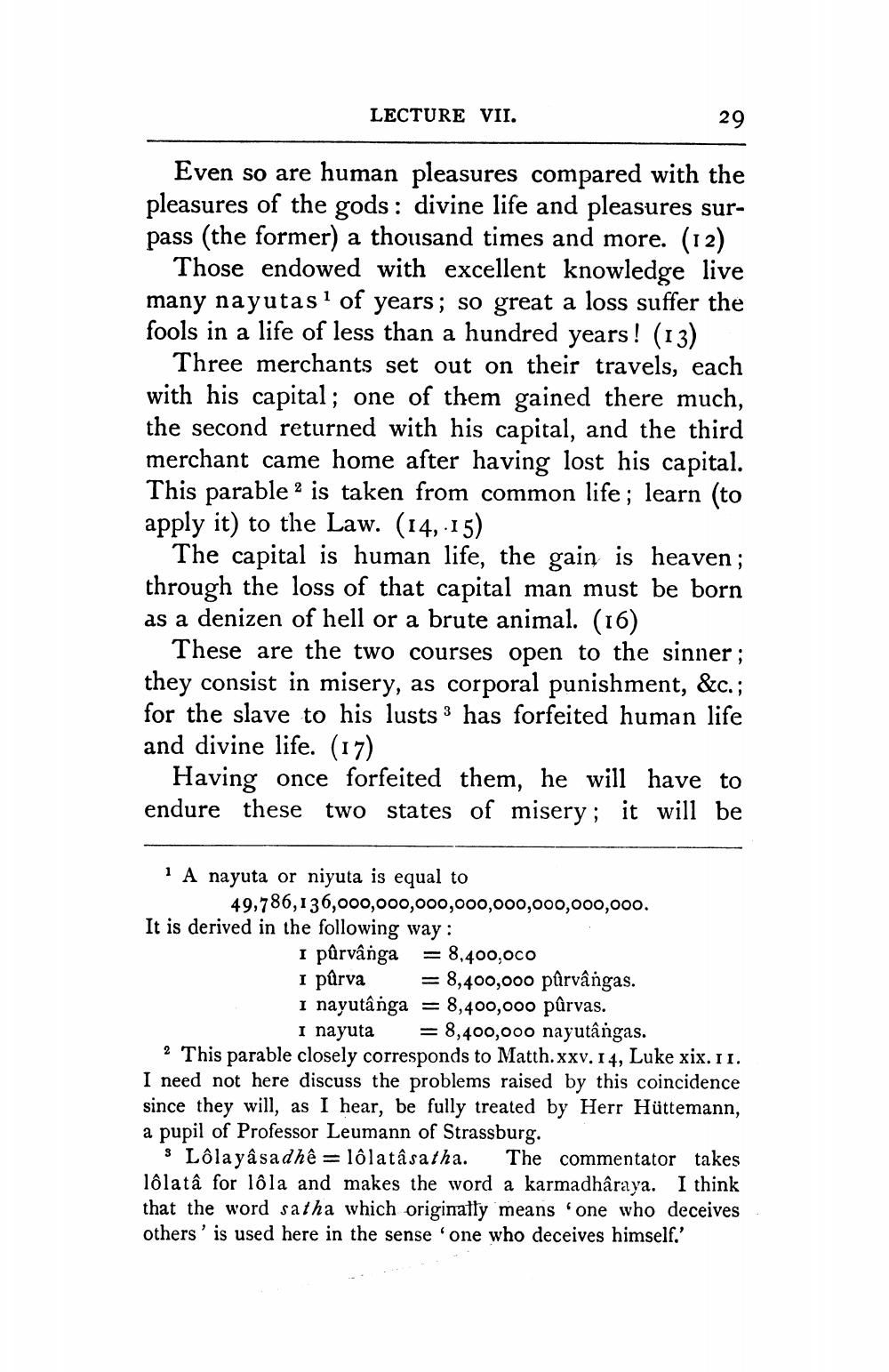________________
LECTURE VII.
29
Even so are human pleasures compared with the pleasures of the gods: divine life and pleasures surpass (the former) a thousand times and more. (12)
Those endowed with excellent knowledge live many nayutasof years; so great a loss suffer the fools in a life of less than a hundred years! (13)
Three merchants set out on their travels, each with his capital; one of them gained there much, the second returned with his capital, and the third merchant came home after having lost his capital. This parable 2 is taken from common life; learn (to apply it) to the Law. (14, 15)
The capital is human life, the gain is heaven; through the loss of that capital man must be born as a denizen of hell or a brute animal. (16)
These are the two courses open to the sinner ; they consist in misery, as corporal punishment, &c.; for the slave to his lusts 3 has forfeited human life and divine life. (17)
Having once forfeited them, he will have to endure these two states of misery; it will be
A nayuta or niyuta is equal to
49,786,136,000,000,000,000,000,000,000,000. It is derived in the following way:
I pûrvânga = 8,400,0CO I půrva = 8,400,000 pûrvângas. I nayutânga = 8,400,000 pûrvas.
I nayuta = 8,400,000 nayutângas. ? This parable closely corresponds to Matth.xxv. 14, Luke xix. II. I need not here discuss the problems raised by this coincidence since they will, as I hear, be fully treated by Herr Hüttemann, a pupil of Professor Leumann of Strassburg.
3 Lôla yâsadhê= lôlatâsatha. The commentator takes lôlatâ for lộla and makes the word a karmadhâraya. I think that the word satha which originally means one who deceives others' is used here in the sense 'one who deceives himself.'




